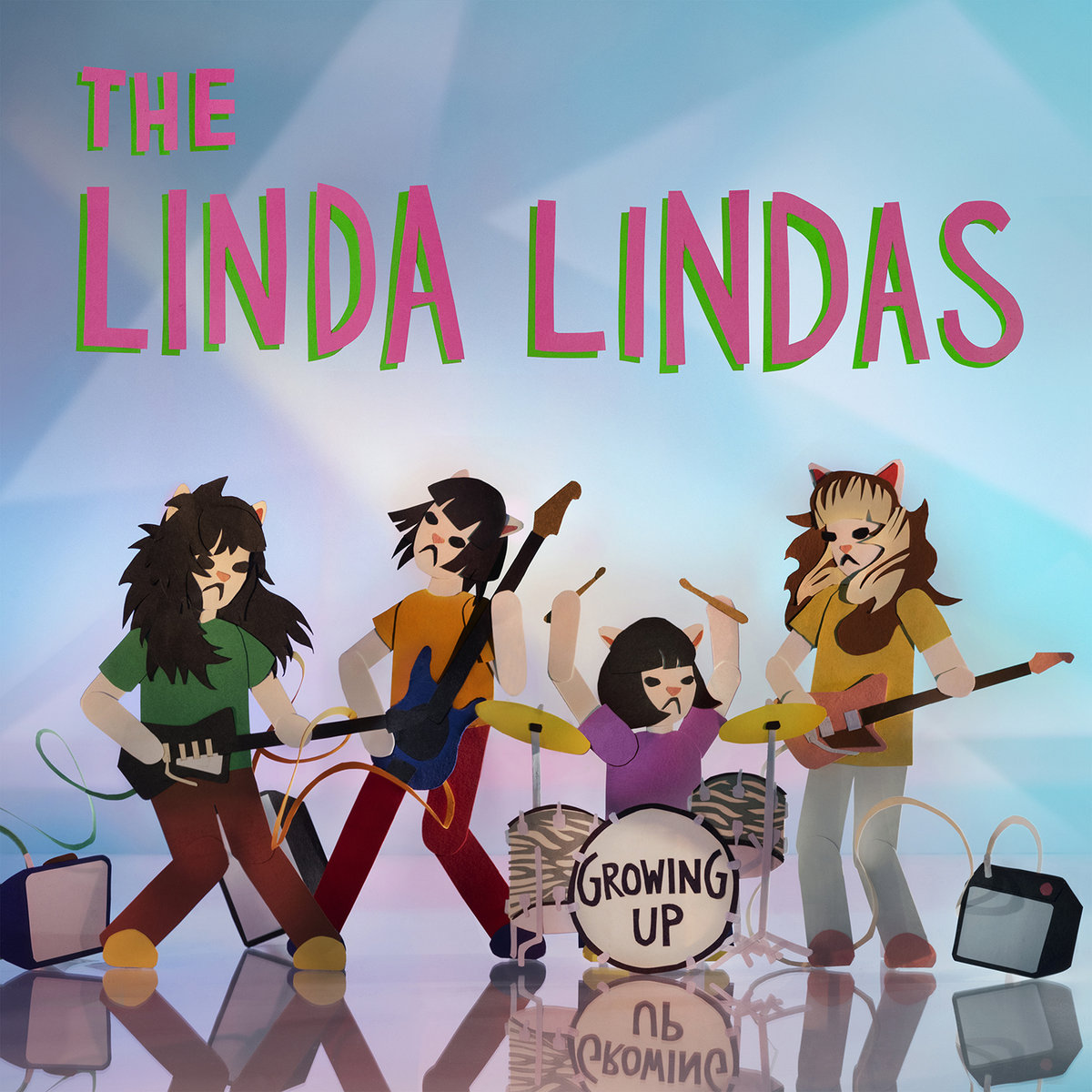The Linda Lindas
Growing Up
EPITAPH
Listening to The Linda Lindas’ debut album for the first time, you’ll be itching to hear “Racist, Sexist Boy”—and why wouldn’t you be? A gleeful and mayhemic send-up of dehumanizing behavior, this was the song that won the band viral success, a spot in Amy Poehler’s Moxie, and a glowing write-up in The New York Times. Not bad for a band whose youngest member is 11 and whose oldest is still well below voting age. Plus, the song is a balm: In an era of grim headlines and suitably humorless commentaries, The Linda Lindas’ snotty mock-the-devil approach is galvanizing.
Growing Up features nine other songs before arriving at its crowd-pleasing conclusion—and while none of them are quite as pointed or as meme-able as “Racist, Sexist Boy,” that might actually be a feather in the band’s cap. The first single and cartoon artwork could have imprisoned them in novelty status (the #1 Google suggested search: “Are The Linda Lindas a real band?”), but as far as confections go Growing Up is actually quite hearty, a set of sturdily constructed songs that blur the line between bubblegum tunefulness, power-pop crunch, and punk abandon.
Maybe that’s another way of saying that The Linda Lindas deliver on all the promises of late-’90s pop punk, while also one-upping so many po-faced, would-be rock-and-roll saviors that have come and gone. There’s nothing at all pretentious or self-serious about Growing Up, a record that’s bright and fast and colorful, recorded with pristine clarity and equal parts heart and humor. The Linda Lindas celebrate youth throughout, most notably on the title track’s tenderhearted bildungsroman/friendship anthem. “Talking to Myself,” one of the album’s most unabashed earworms, wonders why we can’t all shoot straight with one another about all the weird, awkward stuff we’re keeping inside—a teenage conceit that’s no less relevant to the suburban dads who are going to get such a big kick out of this record. (It also suggests that the Venn diagram of people who watch Big Mouth and people who go hard for this record is going to be a pretty tight circle.)
Their tight, tuneful songcraft is unerring: “Fine” crams an entire lexicon of adolescent sneers into a pulverizing two minutes, and the stealth bomber “Nino” is even more compact, deploying its monster hooks in a breakneck minute and 50 seconds. “Cuántas Veces” throws a curveball, a vaguely lounge-y groove with Spanish-language lyrics and chintzy drum machines. Everything is tied together by the band’s pluck, the way they sing about growing up with both candor and bemusement. Throughout the album, teen and pre-teen concerns loom large: “Magic” laments the feeling of invisibility, while the irrepressible “Oh!” catalogs feelings of helplessness in the face of seemingly insurmountable problems.
Of course, once “Racist, Sexist Boy” rolls around, The Linda Lindas have proven themselves much more effective and affecting than they let on. Hearing them drip comic disdain for the status quo is an undeniable thrill. It’s not just a vivid reminder of the wisdom of youth, but also of the enduring appeal of starting a band with your friends, then making a joyful ruckus.







